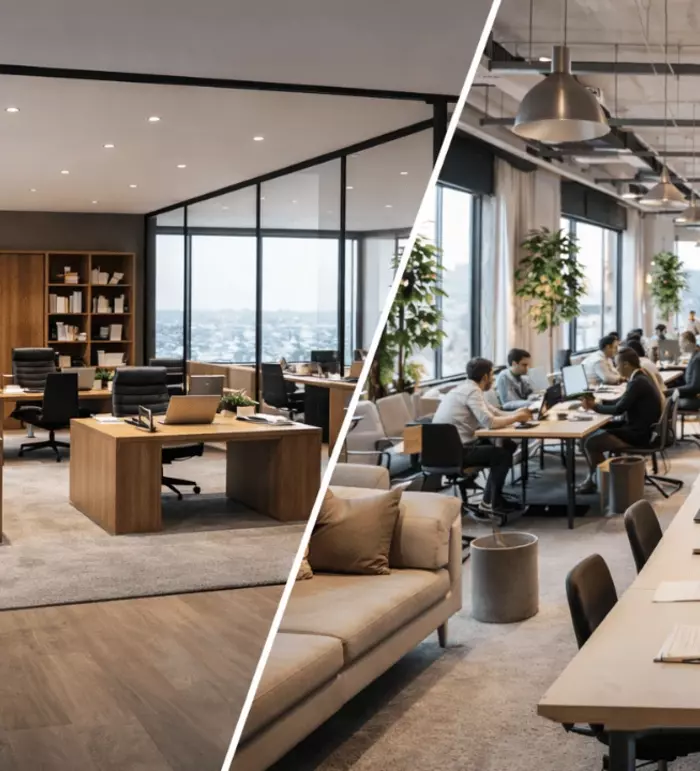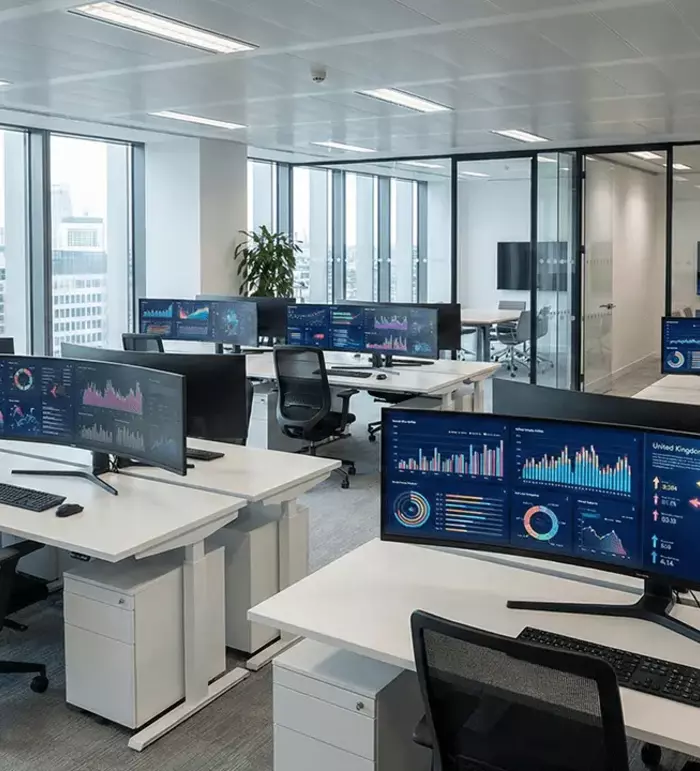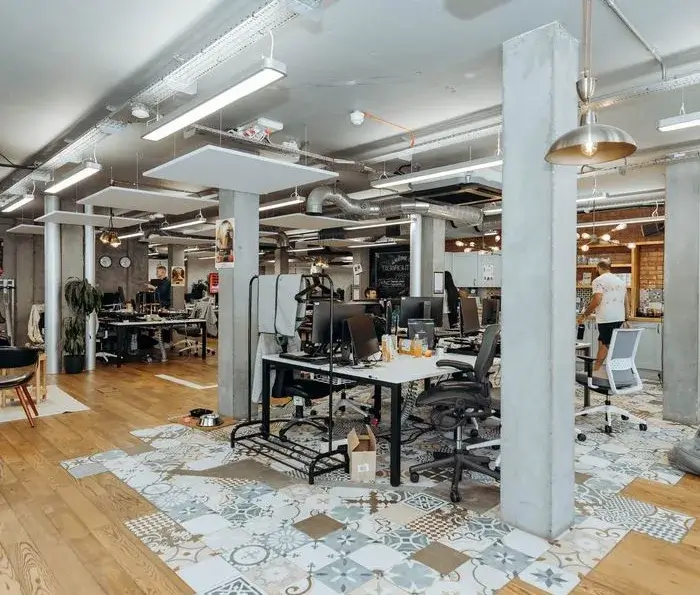Office News & Guides
- Flexioffices Team
- 30 January 2026
- Serviced Office Space

Serviced Office Space vs a Traditional Lease in London
If you are weighing up serviced office space options in London, you are probably trying to make a simple decision in a very expensive city: ho...
- Flexioffices Team
- 27 January 2026
- Fit-Outs, Productivity, Workplace Design

8 Ways To Make Your Office Feel More Spacious Instantly
A small office can be productive, calm, and good-looking, but only if it is set up to support how people move and work. When it isn't, the sam...
- Flexioffices Team
- 21 January 2026
- Business Continuity

Disaster Recovery Offices: How To Be Back Up in 72 Hours
When an incident knocks out your usual workplace, time goes strange. One hour feels like a day, and a day can disappear in meetings that lead ...
- Flexioffices
- 16 January 2026
- Area Guides

City vs West End for Professional Services HQs
Choosing between the City and the West End is not just a property decision. For many firms, it affects hiring, client confidence, and how work...
- Flexioffices
- 14 January 2026
- Office Relocation, Strategy & Planning

How Long Does It Take to Move Offices?
Moving offices sounds like a single event, but it is really a chain of decisions, approvals, and lead times. Some parts are in your control, l...
- Flexioffices Team
- 7 January 2026
- Flexible Office Space

Private Office vs Coworking: Why Professionals Are Switching
Coworking had a clear promise: turn up with a laptop, meet people, and get work done without the hassle of a lease. For many freelancers and e...
- Flexioffices Team
- 17 December 2025
- Fit-Outs, Office Relocation

CapEx vs OpEx funding your next office fit-out
Office moves feel like a property job, but they are really a finance job in disguise. The way you fund your next space shapes how fast you can...
- Flexioffices Team
- 8 December 2025
- Market Reports & Statistics, UK Office Market

120+ UK Office Space Statistics 2025: The Market Report
1. Why office space statistics matter in 2025Real estate directors are under pressure to cut costs, upgrade quality and support hybrid working...
- Flexioffices Team
- 28 November 2025
- Office Amenities, Strategy & Planning, Workplace Design

Amenities That Matter and Actually Get People Back In
Hybrid is here to stay, so the question is not whether people return to the office, but why they would choose to. An office amenities strategy...
- Flexioffices Team
- 25 November 2025
- Business Rates & Tax, Dilapidations, Moving Offices

Dilapidations and Business Rates Traps to Avoid at Exit
Exiting an office is not just handing back the keys. The two line items that surprise teams most are dilapidations and business rates, because...







 Why is collaborative work important?
Why is collaborative work important? What are the top benefits of collaboration at work?
What are the top benefits of collaboration at work?